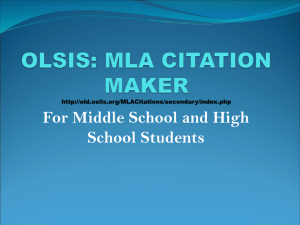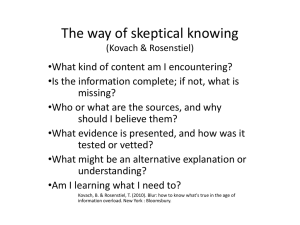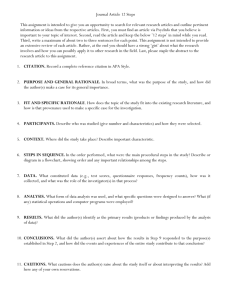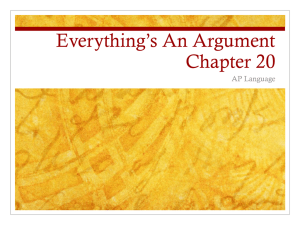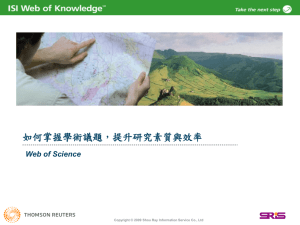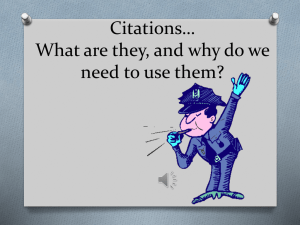The Great Depression Outline: Living, Jobs, & Leisure
advertisement
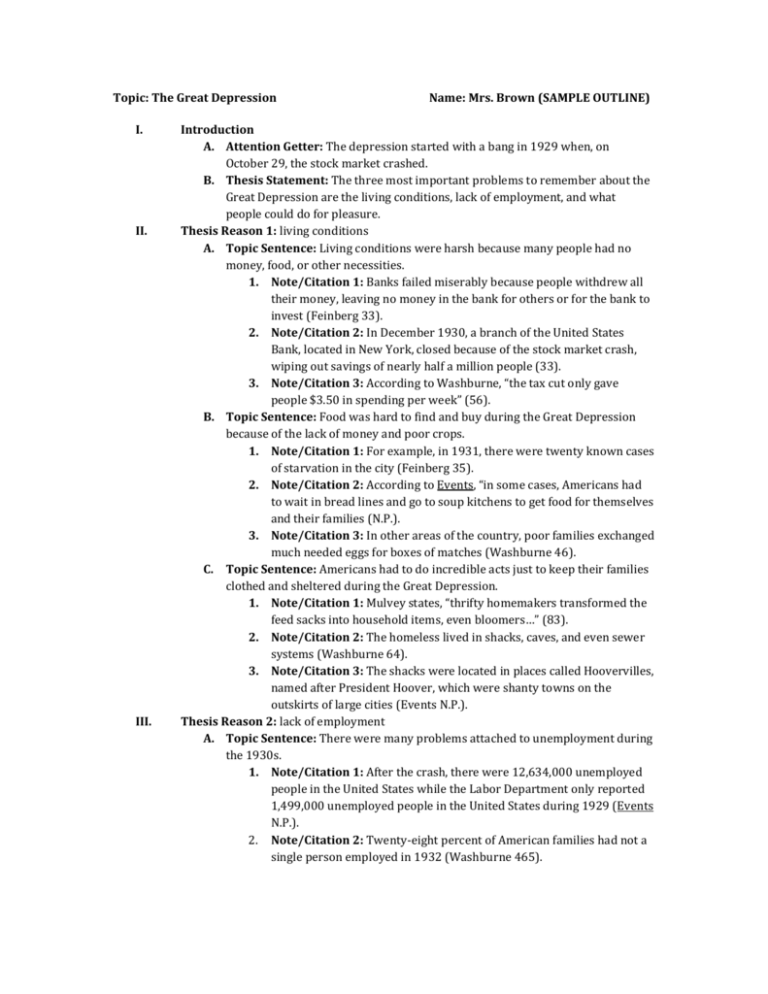
Topic: The Great Depression I. II. III. Name: Mrs. Brown (SAMPLE OUTLINE) Introduction A. Attention Getter: The depression started with a bang in 1929 when, on October 29, the stock market crashed. B. Thesis Statement: The three most important problems to remember about the Great Depression are the living conditions, lack of employment, and what people could do for pleasure. Thesis Reason 1: living conditions A. Topic Sentence: Living conditions were harsh because many people had no money, food, or other necessities. 1. Note/Citation 1: Banks failed miserably because people withdrew all their money, leaving no money in the bank for others or for the bank to invest (Feinberg 33). 2. Note/Citation 2: In December 1930, a branch of the United States Bank, located in New York, closed because of the stock market crash, wiping out savings of nearly half a million people (33). 3. Note/Citation 3: According to Washburne, “the tax cut only gave people $3.50 in spending per week” (56). B. Topic Sentence: Food was hard to find and buy during the Great Depression because of the lack of money and poor crops. 1. Note/Citation 1: For example, in 1931, there were twenty known cases of starvation in the city (Feinberg 35). 2. Note/Citation 2: According to Events, “in some cases, Americans had to wait in bread lines and go to soup kitchens to get food for themselves and their families (N.P.). 3. Note/Citation 3: In other areas of the country, poor families exchanged much needed eggs for boxes of matches (Washburne 46). C. Topic Sentence: Americans had to do incredible acts just to keep their families clothed and sheltered during the Great Depression. 1. Note/Citation 1: Mulvey states, “thrifty homemakers transformed the feed sacks into household items, even bloomers…” (83). 2. Note/Citation 2: The homeless lived in shacks, caves, and even sewer systems (Washburne 64). 3. Note/Citation 3: The shacks were located in places called Hoovervilles, named after President Hoover, which were shanty towns on the outskirts of large cities (Events N.P.). Thesis Reason 2: lack of employment A. Topic Sentence: There were many problems attached to unemployment during the 1930s. 1. Note/Citation 1: After the crash, there were 12,634,000 unemployed people in the United States while the Labor Department only reported 1,499,000 unemployed people in the United States during 1929 (Events N.P.). 2. Note/Citation 2: Twenty-eight percent of American families had not a single person employed in 1932 (Washburne 465). IV. V. 3. Note/Citation 3: Events notes, “the year 1933 marks a time in America’s history when one out of every three people in the work force was unemployed (N.P.). B. Topic Sentence: Unfortunately, there was not much selection in regards to jobs during the Great Depression. 1. Note/Citation 1: People resorted to “selling fruit door-to-door” to make just a little bit of money (Mulvey 18). 2. Note/Citation 2: It was not uncommon to see children on the streets selling apples and newspapers and then giving the money to their parents (Feinberg 35). 3. Note/Citation 3: In addition, people would do odd jobs in exchange for food or cast-off clothing at towns along the railways (35). Thesis Reason 3: what people could do for pleasure A. Topic Sentence: Pleasures were hard to come by during the Great Depression, but Americans attempted to remain upbeat. 1. Note/Citation 1: Between 1930 and 1932, four million Americans bought radios to hear news, political opinions, entertainment, and ads for products. Radios played in homes for up to four-and-a-half hours a day (Thorkelson N.P.). 2. Note/Citation 2: With the use of radios, fans were able to follow favorite football teams and listen to baseball games (Mulvey 22). 3. Note/Citation 3 B. Topic Sentence: Movies were a popular pleasure of the Great Depression. 1. Note/Citation 1: Popular movies during this time include Gone with the Wind, The Wizard of Oz, Snow White and the Seven Dwarfs, and King Kong (Washburne 531; Mulvey 141). 2. Note/Citation 2: Mothers used movies as “baby-sitters” on Saturdays to keep their children occupied as they worked (Mulvey 140). 3. Note/Citation 3 C. Topic Sentence: New forms of pleasure and recreation became popular in the 1930s. 1. Note/Citation 1: For example, “county fairs were big social events across rural America during the Depression years” (Mulvey 137). 2. Note/Citation 2: Dance marathons were all the rage because people wanted to win money by doing something easy, like dancing (Feinberg 35). 3. Note/Citation 3: State and national parks opened so people could have free recreation (Washburne 523). Conclusion A. Restate Thesis: Living conditions, lack of jobs, and what people could do for pleasure are three important problems to be remembered about the difficult time of the Great Depression. B. Final Thought: WWII forced America to join together and work to overcome their problems from this hard time in the United State’s history. Without the Second World War, American could still be feeling the effects of the Great Depression of the 1930s.
